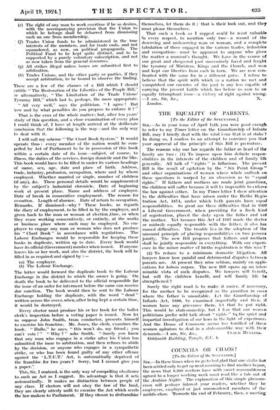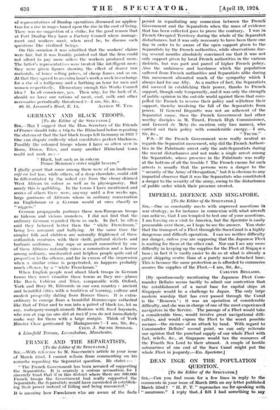COUNCILS OR CHAOS ?
[To the- Editor of the SPEC'TATOR.] SIR,—In these times when we go to bed glad that one strike has been-settled only to get up next morning to find another begun, the news that 8,500 workers have with sweet reasonableness agreed to a longer working week must read like a talc out of the Arabian Nights. The explanation of this simple phenom- enon will perhaps interest your readers, whether they be employers, employed or just Unconsidered members of the middle-riass. 'Towards 'the end -of February,-then, it meeting of-representatives of -Dunlop operatives discussed an applica- tion for a rise in.wages based upon the rise in the cost of living. There was no suggestion of a strike, for the. good reason that at Fort Dunlop they have a Factory Council where manage- ment and workers meet, when need be, to discuss such questions like civilized beings. • • On this occasion it was admitted that the workers' claims were fair, but it was frankly pointed out that the firm could not afford to pay more unless the workers produced more. The latter's representatives were treated like intelligent. men ; they were given figures showing the effect of dearer raw materials, of lower selling prices, of cheap francs and so on. At that they agreed to an extra hour's work a week in exchange for a rise of a halfpenny and a farthing an hour for men and women respectively. Elementary enough this Works Council idea ? In all conscience, yes. Then why, for the lack of it, should we have our rations of meat, coal, milk and other necessaries periodically threatened ?—I am, Sir, &c., 86 St. Leonard's Road, E. 14., ALFRED W. YEO.



































 Previous page
Previous page